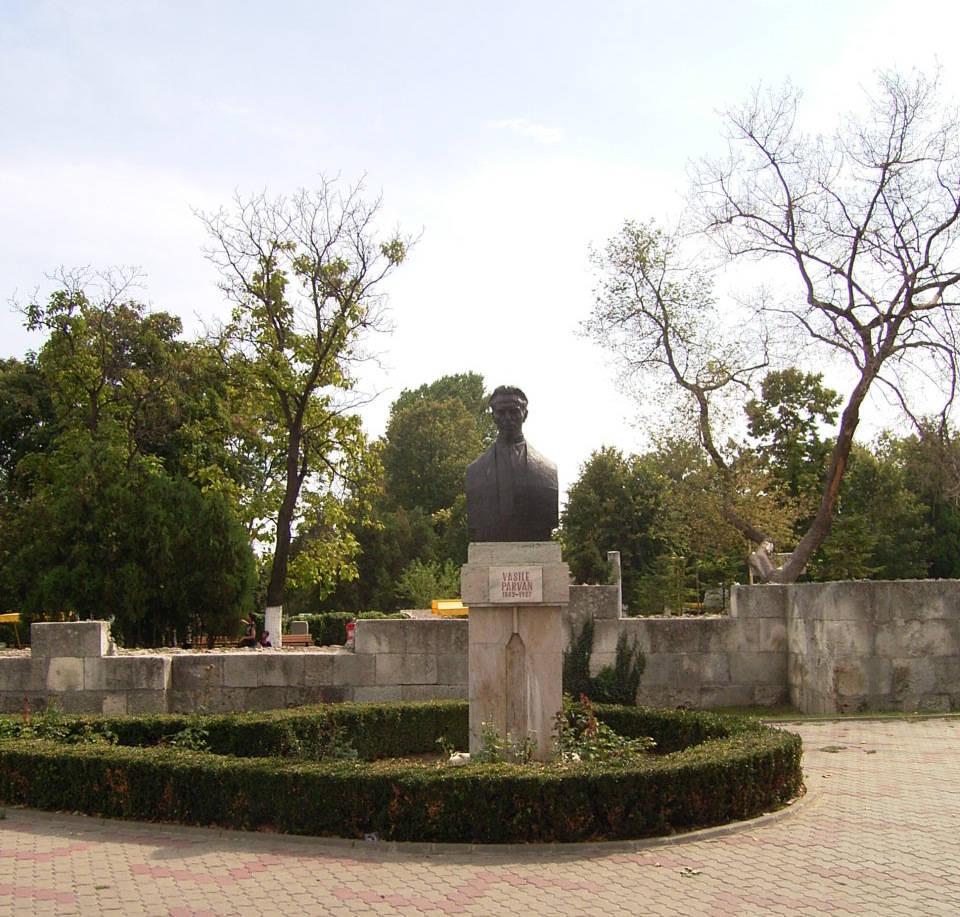

Located at the entrance to the Archaeological Park, towards the Ferdinand Avenue, the bust of Vasile Parvan was unveiled in 1957 and it is the opera of the sculptor Ion Irimescu.
Vasile Parvan (1882 – 1927) was one of the great Romanian archeologists, whose name is linked to the most important discoveries related to the history of Dobrogea and the city of Constanta. He led archeological researches in different regions of the country as director of the National Museum of Antiquities of Bucharest, as a member of the Romanian Academy – the Historical Department of the Commission for Historical Monuments. He studied the archeological complex from Adamclisi and gradually, through researches, he a ame to know closely the whole region of Dobrogea and provide valuable data on the issue regarding the Pontic Greek cities beginnings of civilization.
In three archaeological campaigns, has exposed the walls of the mighty fortresses of Histria. The researches constituted the documentary basis for many Romanian and foreign studies, on the history of ancient Greek colony on the Black Sea shores.
In January 1915 Vasile Parvan began excavating the inner wall of Tomis; based on results he established the enclosure outline and made his first topographical plan of the ancient city ruins, severely destroyed by the houses built after 1878. The Systematic researches taken in Constanta by the National Museum of Antiquities, in parallel with utility works have led to discovery of large quantities of archaeological monuments which have still do not have an adequate space, continuing to operate in the kiosk in the park..
He has began his work with historical doctoral paper work called Naționalitatea negustorilor din Imperiul roman (1909, in German language), consideraed by the specialists as one of the best studies about development of trade in classical antiquity. In order to resolve issues related to the history of Dacia, he oragnized a series of sistematical excavations, especially archeological sites of the second Iron Age. Based on the initial result of these excavations he wrote Getica (1926), his most important paper work (due to his fate), an extensive historical and archaeological synthesis, by which he brought back to the forefront of historical research the political and cultural role of Daco-Getae; some shortcomings and excesses (including the emphasizing of the role of the Scythians and Celts in the development of Dacian culture) does not encroach the value of this book.
By historical idealistic conception exposed in the sociological study Ideile fundamentale ale culturii sociale contemporane and in essays (the volumes Idei și forme istorice și Memoriale) has managed to make a synthesis of Neo-Hegelianism Sineo-Kantianism and he declared himself an opponent of chauvinism and cosmopolitanism.
Vasile Parvan had an important role in creating the new Romanian school of archeology. He organized the Romanian School in Rome, an institution for the improvement of young archaeologists and historians, and initiated and led his yearbooks appearance „Ephemeris Dacoromana” și „Diplomatarium Italicum”, and the first series of the magazine “Dacia”.
